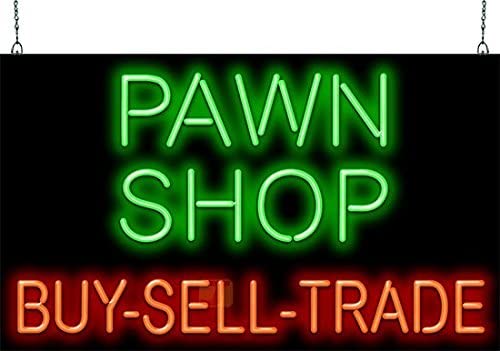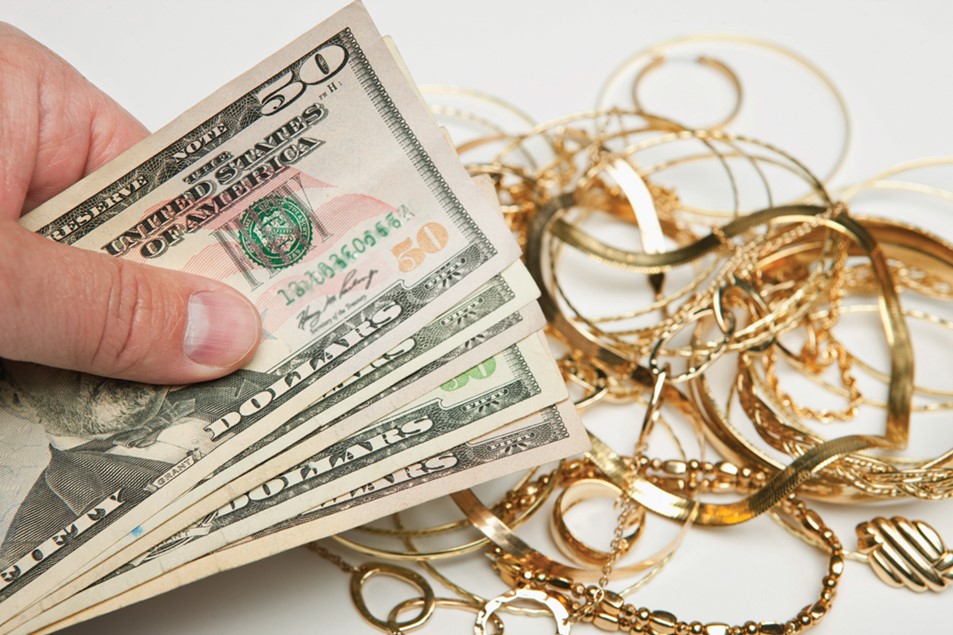Difference Between Pawn Shops & Buy Sell Trades ?

Should you pawn your item, sell it,or trade it in? Learn the differences between pawn shops and buy-sell trades and how to get the best offers and deals at each. At first glance, pawn shops and buy-sell-trade stores seem similar. And indeed, sometimes both services are offered by the same business. However, pawning and selling/trading an item is quite different. Which one you choose depends on your financial situation, the amount of cash you want, and the object itself. Read on to learn whether you should pawn, sell, or trade your item.
What is Pawn vs. Sell?
Pawning Your Item
People often say "pawn" when they mean selling an item, but actual pawning is not like that. For one thing, you retain ownership of the item. The pawnbroker will offer you a cash loan based on the item's resale value. This is a viable way to get a quick cash loan without needing to rely on your credit score or go through a bank. These are very short-term loans, and because your item is used as collateral, you'll only get a loan for a percentage of that item's max resale value. However, this is the best option if you want to recover your item. If you don't repay the loan, the pawnshop may keep the item to recoup their losses.
Selling Your Item
Selling an item means you relinquish ownership of it. However, you may be able to get a higher cash value for that exact reason. Buy-sell-trade shops may also offer the option to trade in an item. This is especially popular for certain collectibles and media, such as video games, baseball cards, and books. Because it's easy to find items of comparable value and many people rotate items through their collection, buy-sell-trades are very appealing in these markets.
What to Pawn vs. What to Sell
Pawnshops generally deal in high-value items such as gold, jewelry, firearms, rare collectibles, musical instruments, high-end electronics, and so on. Because the resale value of media items, housewares, and other everyday products is so low, most pawnbrokers won't be able to offer you a loan on these types of items.
That said, pawnshops will only offer loans for items that they believe they could sell if you fail to repay the loan. Inexpensive musical instruments, boomboxes, costume or low-karat jewelry, etc., are not in as high demand, so these are better sold or traded. Pawning is best for your most valuable items, assuming you want them back after paying the loan.

Do you get more money if you pawn something or sell it?
The amount of cash you get for your item depends widely on what it is, how rare it is, and where you take it. In general, you'll get more money if you pawn something because the items tend to have a higher resale value. However, you may get more in a sale if the item is a collectible in a niche market or holds inherent worth (i.e., gold or precious stones).
In other words, you'll get more by selling your gold than pawning it — but you do have to relinquish ownership.
For lower-value items such as media, clothing, low-end electronics and instruments, bikes, and so on, you likely won't get a large loan from a pawnbroker. To convert these items into cash, you usually need to sell them. Most buy-sell trades will offer you a percentage of what they can sell it for, so it still won't be much.
If you can trade an item in for store credit, you'll usually get a higher value. This option is ideal if you're looking to swap your belongings for new ones, especially books, clothing, Blu- rays, games, and so on.
Another option is to take your item to a consignment shop. This is a bit like a buy-sell-trade, except you only receive cash when the item sells. However, you may be able to fetch more as consignment shops typically specialize in antique, vintage, and collectible items.
How do pawn shops determine value?
Different shops have different methods for appraising items. If the item contains gold, gemstones, or something with a well-established market price, pawnbrokers can more easily assess the item's actual value. However, keep in mind that they still need to turn a profit if you don't pay the loan and claim the article, which means you will not be receiving resale value. This varies based on the item's age, condition, and overall appeal.
For example, a 18k gold watch will have a higher value than a 12k gold artifact, in more ways than one.
For firearms, electronics, musical instruments, etc., pawnbrokers will weigh the item's original market value against its current condition and age. In general, the newer and pricier the article, the higher its collateral value — but the loan will still be based on the pawn shop's resale price, not the total item value.
Frequently Asked Questions about Pawning
Can you trade items at a pawn shop?
It depends on the shop. Some do offer a buy-sell-trade program for items that customers simply want to liquidate. If you're willing to relinquish ownership of the item, you can go ahead and sell it. If you do a trade-in, you can get store credit for other items in the shop, which can be a great strategy if you're eager to offload some valuables and make a big purchase. Many pawn/sell/trade shops have a selection of inventory they need to clear, so you can find some fantastic deals on instruments, firearms, electronics, and so on.
When you pawn something, is it gone forever?
No, pawn shops offer short-term loans based on the value of your item. If you pay the loan on time, you can recover the item.
Can you negotiate at pawn shops?
Yes, you and the pawnbroker can swap offers for the collateral. You are always free to ask for the amount you think is fair, based on the item's value. Just know that the pawnbroker
will be calculating what they could sell the item for if you don't pay up, plus their markup. So, it's always a good idea to know how much the item is worth vs. how much another
customer would pay for it. You may also be able to fetch a better offer if you're willing to accept a shorter repayment term and/or higher interest rates.

